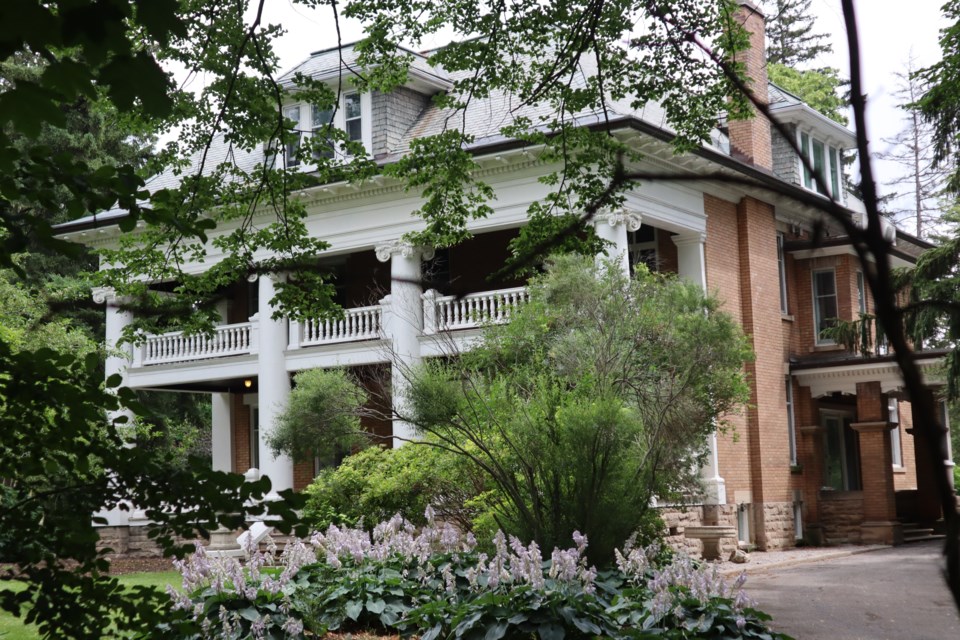The city will wait until May to vote on a motion from Coun. Jan Liggett calling for the dissolution of the Ontario Land Tribunal, a quasi-judicial body tasked with resolving municipal land-use disputes.
Council made the decision Tuesday after hearing that the Association of Municipalities of Ontario just released its response to the Ontario Housing task force’s report on the provincial housing crisis, with the majority on council agreeing they should consider all aspects related to the issue before voting.
Some, like Liggett, fear allowing the OLT to continue as is will hinder the task force’s goal of adding 1.5 million new homes to the province over the next 10 years.
The task force calls for efforts to prevent the abuse of the appeal process at the OLT and address its backlog by prioritizing cases that increase housing.
But Liggett questions what that means.
“It did not say affordable, attainable, supportive housing,” she said. “This will add to the red tape rather than streamline the process.”
Two recent examples of Cambridge projects that landed in appeal hearings at the OLT after council made a decision the developers didn't agree with are the Forbes Estate plan and 151 Main St. in Galt.
Aurora Mayor Tom Mrakas is leading the push to dissolve the OLT and has the backing of close to 70 municipalities so far, all of them frustrated with seeing local planning decisions overturned.
Liggett joined the effort last month when she presented her notice of motion, part of which says the often costly OLT hearings act as a barrier to the development of attainable housing.
The Cambridge councillor was among a number of local councillors, including Nicholas Ermetta, who attended a 2017 summit organized by Mrakas on proposed reforms placing limits on the powers of the OLT’s predecessor, the Ontario Municipal Board.
The province listened to those concerns by dissolving the OMB and creating the OLT last June, merging the Local Planning Appeal Tribunal, Environmental Review Tribunal, Board of Negotiation, Conservation Review Board and the Mining and Lands Tribunal into one.
In the majority of cases, the OLT mediates appeals from developers who didn’t get their way at the municipal level because their projects included official plan and zoning amendments that municipal staff and councils didn’t agree with.
Liggett said in reworking the OLT, the new tribunal promised a commitment toward providing access to justice with “high quality, timely, fair and principled resolutions for the matters brought before them.”
In the year since it was formed, however, Liggett said the OLT “has shown itself to be quite the opposite.”
She said it’s so profoundly pro-development that it now requires total dissolution.
“It is consistently and repeatedly overriding local community development plans in favour of development interests,” she told her fellow councillors.
“We will never solve the housing crisis, which is rampant across the province, through the decisions of this unaccountable body.”
Ontario is the only province with a tribunal in place to override local decisions she said.
Dissolving the OLT, which allows developers to appeal council decisions without taking the time to work with council or residents, will help stop the kind of proposals “that make developers very happy but do little to solve the housing crisis or wider problems related to development patterns in the region such as transportation or the environment,” she added.
“Let us do our jobs in upholding our provincially approved official plans,” she added. “Giving the understanding to developers that they can get shovels in the ground much faster by working with those we represent rather than having a complete disregard for the community in which they choose to build.”
Ermetta offered his full support to the motion, saying his greatest concern is all the money municipalities put into their official plan reviews only to see those decisions get overturned at the OLT.
“We’re concerned about the decreasing local autonomy,” he said. “This would give us a tool to have a much greater say to be able to chart the destiny of the community.”
Asked to weigh in on the issue, city manager David Calder recommended council might want to wait and consider the AMO’s stance before supporting the motion.
It was also part of recent discussions at the Big City Mayor’s caucus, with many of the mayors there saying they worried about removing the right to appeal.
Calder went on to say there has been discussion about changing the rules at the OLT to limit appeals for developments that have an affordable housing element and to ask for oral decisions to streamline the process, cut down on red tape, and reduce the backlog.
“There’s still a lot of moving parts to this in terms of input,” Calder said.
Mayor Kathryn McGarry said part of the discussion among the Big City Mayors was around how some municipal councils make decisions that aren’t compliant with their own official plans.
“Dissolving the OLT would not allow for either the property owner or the residents to have an appeal mechanism when those municipal councils do not uphold their own official plan,” she said.
But Liggett said whenever this has happened in the past, a new judicial body forms to replace it.
Coun. Ermetta, added there would also be opportunities for residents and landowners to appeal decisions around “questions of law” if, for instance, it goes against a municipality’s own official plan.
He said a tribunal could be put in place with “very limited powers” to deal with those matters.
“We don’t want someone in Toronto coming in and making a decision of what our community should look like,” he said.
A motion to defer the decision to May passed after council discussed the timing in relation to the provincial election in June.



